To provide the best experiences, we use technologies like cookies to store and/or access device information. Consenting to these technologies will allow us to process data such as browsing behaviour or unique IDs on this site. Not consenting or withdrawing consent, may adversely affect certain features and functions.
The technical storage or access is strictly necessary for the legitimate purpose of enabling the use of a specific service explicitly requested by the subscriber or user, or for the sole purpose of carrying out the transmission of a communication over an electronic communications network.
The technical storage or access is necessary for the legitimate purpose of storing preferences that are not requested by the subscriber or user.
The technical storage or access that is used exclusively for statistical purposes.
The technical storage or access that is used exclusively for anonymous statistical purposes. Without a subpoena, voluntary compliance on the part of your Internet Service Provider, or additional records from a third party, information stored or retrieved for this purpose alone cannot usually be used to identify you.
The technical storage or access is required to create user profiles to send advertising, or to track the user on a website or across several websites for similar marketing purposes.
 For now, just forget the cyborg monkeys and spinach sending emails, the real short term tech action is all about how to gauge what workers are thinking or doing, and what to do about it – especially if whatever they are thinking and doing is not what the org wants for them or, more importantly, itself. Things are getting crazy. (more…)
For now, just forget the cyborg monkeys and spinach sending emails, the real short term tech action is all about how to gauge what workers are thinking or doing, and what to do about it – especially if whatever they are thinking and doing is not what the org wants for them or, more importantly, itself. Things are getting crazy. (more…)






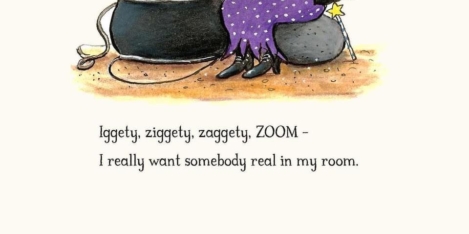

 Generating £27.8 billion gross value added annually, and employing more than 360,000 people, the West Midlands is the UK’s largest centre for business, professional and financial services (BPFS) outside London. Now, business leaders from Shoosmiths, Wesleyan, Bruntwood CBRE amongst others, are working with the region’s just under 12,500 leading tech and digital companies to see how they can integrate AI and advanced technology into their everyday activities.
Generating £27.8 billion gross value added annually, and employing more than 360,000 people, the West Midlands is the UK’s largest centre for business, professional and financial services (BPFS) outside London. Now, business leaders from Shoosmiths, Wesleyan, Bruntwood CBRE amongst others, are working with the region’s just under 12,500 leading tech and digital companies to see how they can integrate AI and advanced technology into their everyday activities. 
 Senior executives aged 55+ have fared better than ‘millennial’ leaders (aged under 35) during the global pandemic.
Senior executives aged 55+ have fared better than ‘millennial’ leaders (aged under 35) during the global pandemic. 

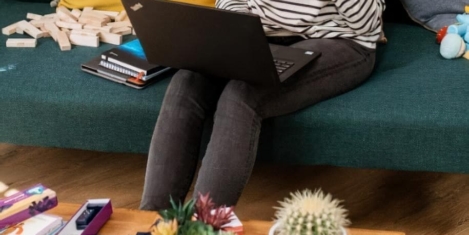
 A new generation of long-term homeworkers created by COVID-19 is at risk physically and mentally through inadequate employer support, claims research by
A new generation of long-term homeworkers created by COVID-19 is at risk physically and mentally through inadequate employer support, claims research by 
 New research from Opinion Matters, commissioned by
New research from Opinion Matters, commissioned by 
 Recently lighting control firm Prolojik assembled an expert panel to talk about learning and working during the time of the Covid-19 pandemic. The roundtable (online of course) involved participants from various fields related to the built environment including those involved in developing, designing and tech reflected on their own experiences over the last several months. While industry issues raised during the session included what productivity really means and how to measure it, what infrastructure needs to be in place to enable people to return to their place of work or education and why a joined-up approach to wellness is an indisputably necessary strand of building management.
Recently lighting control firm Prolojik assembled an expert panel to talk about learning and working during the time of the Covid-19 pandemic. The roundtable (online of course) involved participants from various fields related to the built environment including those involved in developing, designing and tech reflected on their own experiences over the last several months. While industry issues raised during the session included what productivity really means and how to measure it, what infrastructure needs to be in place to enable people to return to their place of work or education and why a joined-up approach to wellness is an indisputably necessary strand of building management. 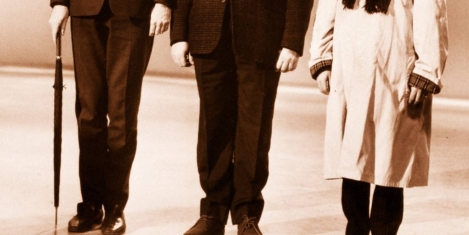

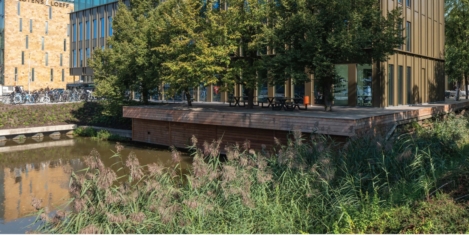
 Smart Building Certification, the organisation behind the smart accreditation, awarded its first platinum building. The founders of Smart Building Certification handed the first official platinum certification over to Coen van Oostrom, Founder and CEO of EDGE.
Smart Building Certification, the organisation behind the smart accreditation, awarded its first platinum building. The founders of Smart Building Certification handed the first official platinum certification over to Coen van Oostrom, Founder and CEO of EDGE. 
 Almost three-quarters (72 percent) of business leaders and 90 percent of CEOs across Europe see organisational agility as critical in driving business performance and growth, yet many are overestimating their capabilities, according to new research from
Almost three-quarters (72 percent) of business leaders and 90 percent of CEOs across Europe see organisational agility as critical in driving business performance and growth, yet many are overestimating their capabilities, according to new research from 
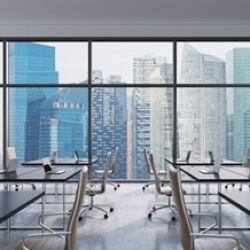 As businesses attempt to stay afloat amid the fluctuating circumstances in the UK, research claims that UK employees are increasingly placing salary packages as the most important factor when it comes to career management. The research by
As businesses attempt to stay afloat amid the fluctuating circumstances in the UK, research claims that UK employees are increasingly placing salary packages as the most important factor when it comes to career management. The research by 








February 10, 2021
Ten point green plan needs to be embraced by organisations
by Paul Scriven • Comment, Environment